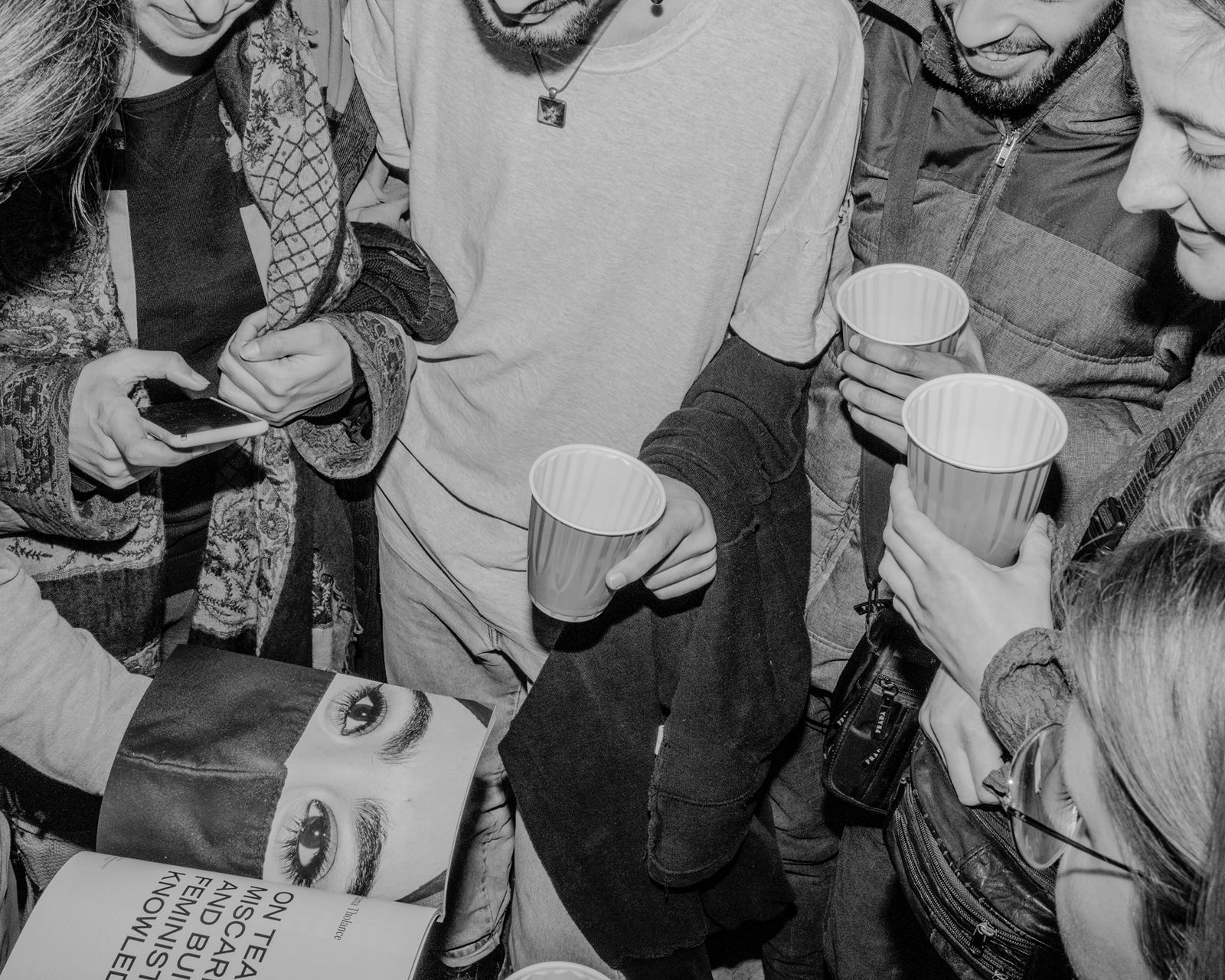It feels almost too surreal to picture, but imagine a dream team of women from all walks of life coming together to create a medium where they discuss every topic their heart desires—free of censorship, judgment and filtration.
For the team behind Al Hayya, this scenario is the reality that drew them all together. Based in the heart of Beirut, the newly-launched magazine publishes literary and visual content on the works, interests and strife of women, bilingually in Arabic and English.
“It was a dream,” said Myriam Boulos, one of the magazine’s founders and core members, about the process that brought the Al Hayya team together. “This created the desire to create a magazine but also the need to create it was very present, and that’s why it’s so natural.”
For its pilot issue on agency, Al Hayya’s contributors engage with a variety of different interpretations of and perspectives on the word. They look at it through the lens of social and political action, engagement to consent, pleasure, personal style, and other expressions of physical, bodily agency.
“The theme of agency just came quite naturally,” said Maya Moumne, another founder and core member. “The act of putting together a magazine on and around women in a region where content on and around women is censored or controlled by men in and of itself is an act of agency.”
Al Hayya was carefully curated by its passionate team to include a collection of features, interviews, opinion pieces and visual essays tackling the topic from different angles.
The fruit of their labor took root amid all the havoc and chaos that spread across Lebanon in 2020, creativity flourishing despite all obstacles and a slow start caused by Lebanese tragedies beyond their control—including the effects of the Beirut blast.
Al Hayya’s first issue would finally come out in March 2022. Beirut Today sat down with Maya and Myriam to discuss Al Hayya, agency, and the challenges they faced setting up a magazine in a crumbling country.
Let’s start from the beginning. How did this idea come to fruition and the team come together? How did you guys decide you wanted to start a publication, especially with everything going on at the time?
Maya: Before starting Al Hayya, I started Journal Safar and Studio Safar with my partner Hatem Imam in 2012 and this whole process of the design studio and publishing a print magazine satisfied a few itches of mine. The first was to publish a periodical and the second was to write on topics that weren’t being discussed at the time.
Nine years into it, I realized it was actually giving birth to a new interest or a new itch that I had that Safar just wasn’t satisfying for me, and it was topics that were on and around women. Because I ran the business of Safar with a male partner, there were all these things that came about in the years that were constantly on my mind and me constantly wondering why these things aren’t addressed, and why there are no platforms or publications that offer representation to people like myself.
And so we had started working on an erotic magazine actually as part of the studio, and then I realized that actually what I’d love to do is work on an erotic magazine for women.
Then I realized that I don’t want to work on an erotic magazine, I want to work on a magazine that addresses erotica in addition to politics, sociopolitics, careers, works, strifes and all that stuff. Myriam has always been somebody who has been on my mind to partner up with for this content, because of the focus of her interest and work.
The first person that I spoke with at the time was Sally Chamas, another one of our partners. She said, “Yes, it’s a great idea, will you partner up with me?” and I said, “Yes, I want to speak to Myriam as well.” From there, we spoke to Yasmine Rifaii and Dorothy Chakra. This is the longer version of the story.
It sounds like it was such a natural and smooth process for your team to come together.
Maya: It was pretty smooth.
Myriam: Also I think that it was smooth because, like I said, it was a dream. This created the desire to create a magazine but also the need to create it was very present, and that’s why it’s so natural.
Was it difficult launching a publication in these times? Not only in terms of logistics and finances, but also in terms of the topics you’re dealing with. I can imagine that these are huge controversial topics and seeing the overall social and political climate in Lebanon, it must be difficult to discuss these things.
Maya: It is certainly difficult. To start with a very, very basic difficulty of this is that it’s a new business or venture for myself.
In addition to that, we have the censorship issue that involves getting the magazine to certain countries within the region, including to the authors of certain articles who are based in certain cities. Sometimes we debate whether they should remain anonymous or whether we should publish their full names.
Myriam: Also more than the content of the magazine, I think that the context of when we started was extremely difficult.
We’re all Lebanese, and we started the magazine in July 2020—one month before the explosion—and creating the whole magazine and first issue was not easy. You’re Lebanese and you’re based in Lebanon, so you know what I’m talking about. It hasn’t been easy to work these past years.
Maya: Yeah, we should have focused on PTSD in the first issue, Myriam.
Myriam: Right!
Maya: It was really hard actually. I’m remembering now—it’s funny what the mind represses and what it doesn’t. I’m remembering now because of what Myriam is saying that it specifically took us a long time to put the first one together because we were going through phases where one of us would just collapse and go off the radar for a little bit.
It was sometimes difficult to do something as simple as writing an email. It’s still there of course, but the first year was particularly difficult.
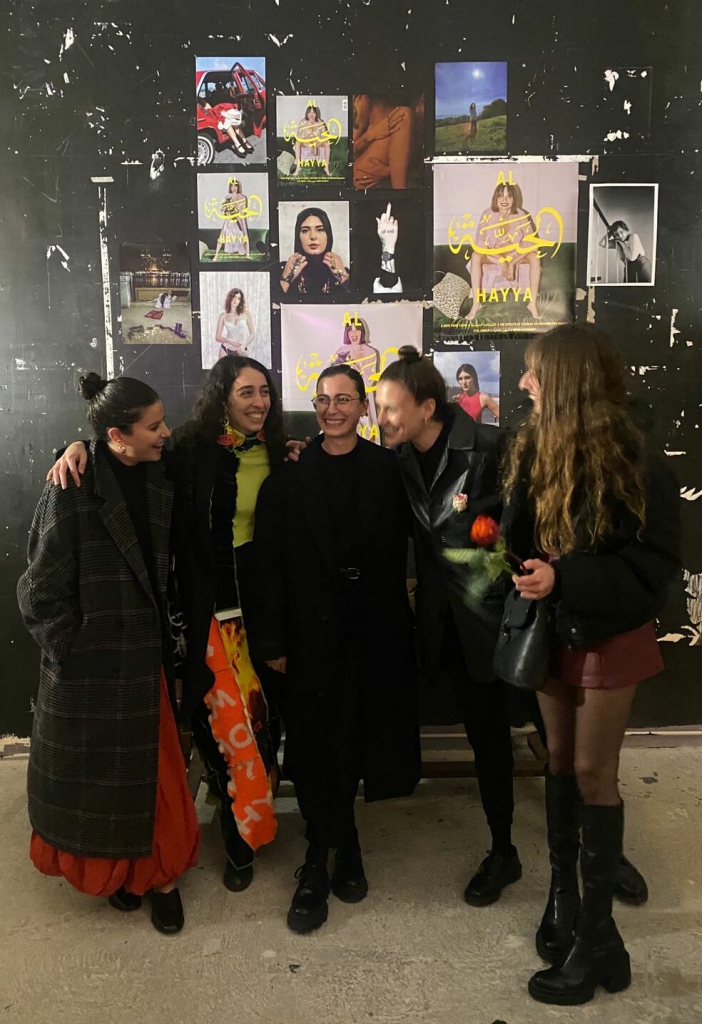
Do you work with an all-female team?
Both: Mostly yes.
So what’s the work dynamic like between you? How do you bounce ideas off of each other and decide what themes to discuss and topics to cover?
Maya: It’s quite organic how the work happens between us.
We all come from different backgrounds and we all have particular, assigned roles but when it comes to the editorial content of the magazine, it’s pretty much mostly the five of us [Myriam, Sally, Maya, Yasmine and Dorothy] that throw the ball back between them to people who we want writing in the issue, to the topics we want written, etc.
Once that’s kind of settled, I feel like each one of us goes back into our individual role of making sure the content, language, art direction, creative direction and visual material are alright.
Is it difficult to find collaborators?
Myriam: No, not at all.
Maya: Yes.
Myriam: Really? I feel like it’s the opposite!
Maya: But also the notion of difficulty is very subjective. I think for Myriam it’s not hard, but I feel like for me it is very hard.
Design-wise or just in general?
Maya: The designers of the issue are Studio Safar—they’ve done the naming, the branding, the design of the print magazine and the visual language we use online, like the graphics and what not.
But what I was talking about was more in terms of content. I find it difficult. I feel like we are all cursed to be from Lebanon. I mean, it’s a blessing and it’s a curse. But I feel like the part that is paralyzing is that working and living in Lebanon means that there is very little work that we do as Lebanese that helps us get to know the rest of the region.
I mean getting to know the rest of the region not just as names, but also culture-wise as well. From that end, I feel like we are constantly searching.
Myriam: I agree with this, but I feel like for me it’s not a difficulty. For me, it’s what I love about our job at Al Hayya. For me, it’s a pleasure to work with these researchers and collaborators.
Maya: Agreed. I mean, no doubt that it’s exciting and exhilarating because it is not something that comes easy.
Myriam: Agreed.
Would you ever consider expanding the team regionally?
Maya: The full-time team is based out of different corners of the world. They do travel often, specifically Myriam, Dorothy and Sally, so they’re not always in Beirut but they are based there.
The collaborators are all over the world. The people who have contributed to the magazines, be it editors, writers, transcribers, etc. are certainly not all from Lebanon. In fact, a very small percentage is from Lebanon.
The other thing is that the magazine isn’t even printed in Lebanon, it’s printed in the UK. The fulfillment agency and the distributor are also based in the UK. So we don’t actually operate from an office.
Let’s get a little bit personal: Did you have any expectations before you started working, and do you feel like you fulfilled them or was your experience different than what it was supposed to be?
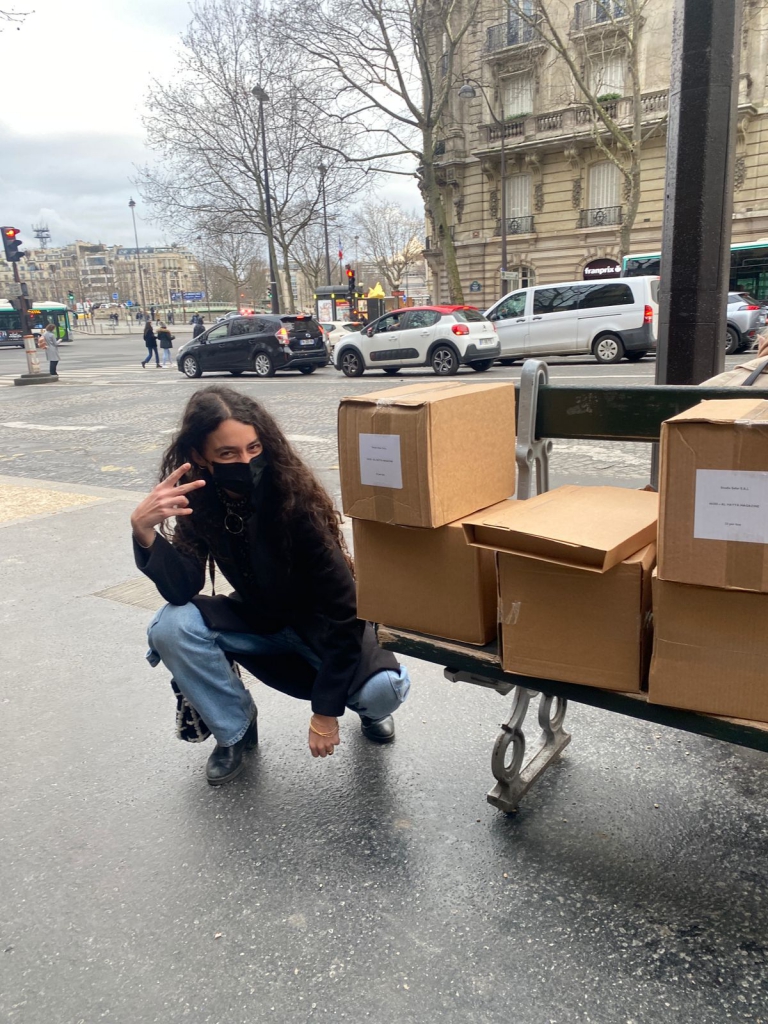


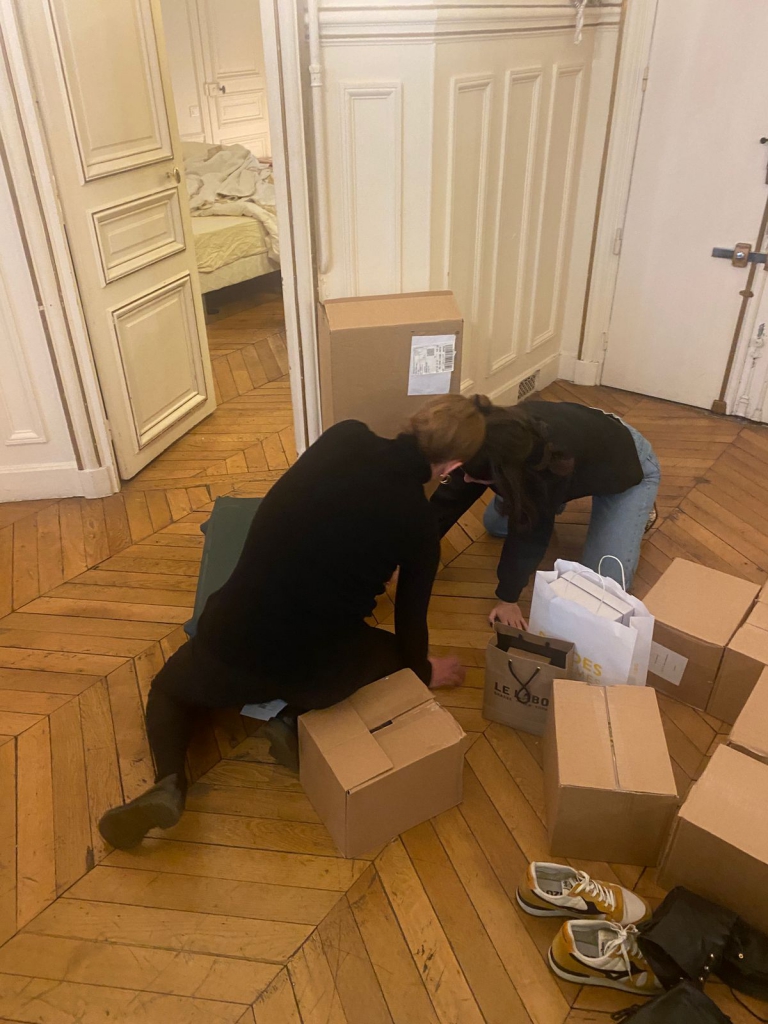


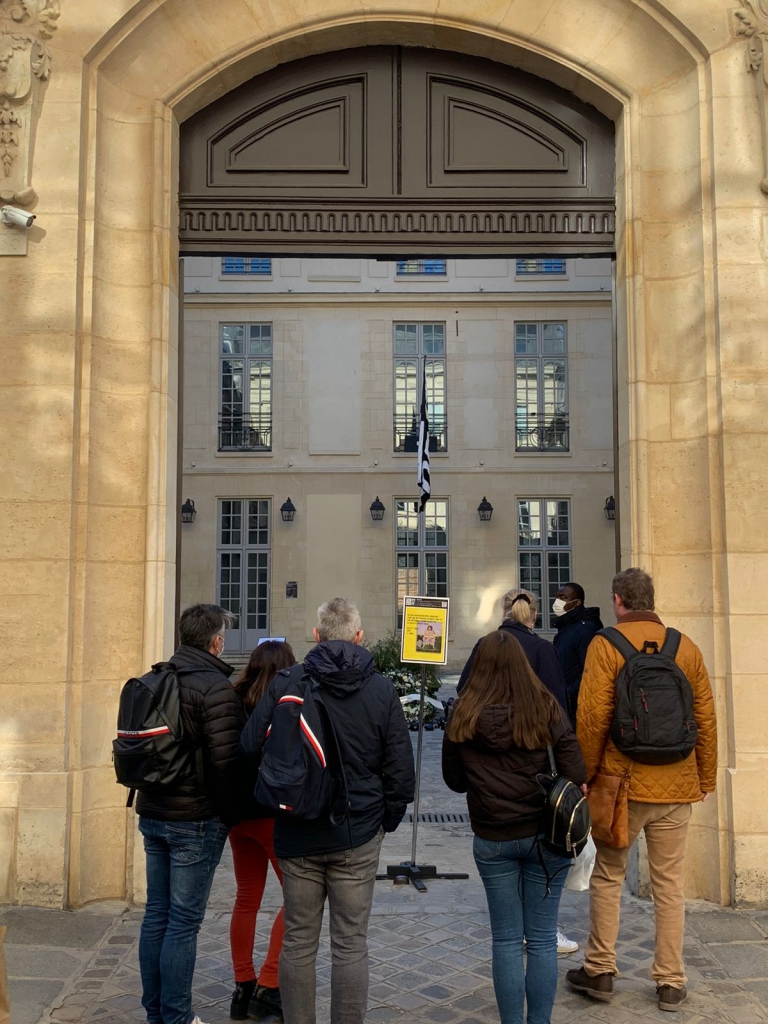


Preparations for Paris launch + Al Hayya Paris Launch
Myriam: Personally I didn’t have any expectations. For me, the magazine is like any other project I work on: I never have expectations, it’s all about the need and desire to work on something. Through the collaborations, the work becomes alive.
I think this is what is exciting and scary in the magazine. Until the last minute, we had no idea what it would look like. We printed it in the UK, and we saw it one day before the launch in Paris, which is crazy!
Again, it’s like any other project. It’s like giving birth to a project and I think that, from my side, I learned so much from the first issue and I’m so excited for the upcoming issue now that the first one is out.
Maya: Same for me. Usually when there are expectations I lose interest and don’t continue working on the project.
I did think I knew more than I did about putting a magazine together because of my experience with Safar, but I knew nothing.
Let’s talk about the first issue: What topics did you cover in it? How did you guys decide on the theme, the photography, the articles, the design? How did you approach it?
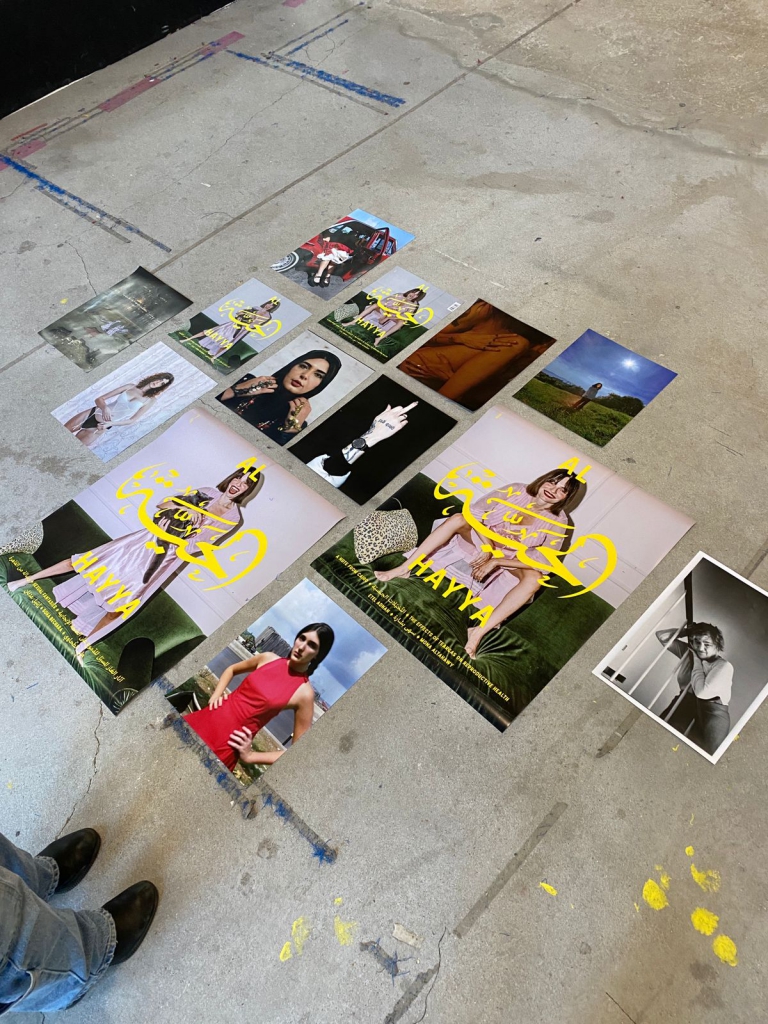


Maya: Maybe we can start by talking about the theme. We decided on the theme after we started putting together a few of the pieces for the first issue, but the theme of “agency” just came quite naturally. The act of putting together a magazine on and around women in a region where content on and around women is censored or controlled by men in and of itself is an act of agency.
It’s not a theme or a conversation that we hear often, or at least I don’t hear it often. So it kind of just took itself there.
Myriam: When I thought about agency, I realized it has a huge place in my life and it was like an evidence for the first issue to be under this theme.
Since you put out the first issue, how’s the feedback been?
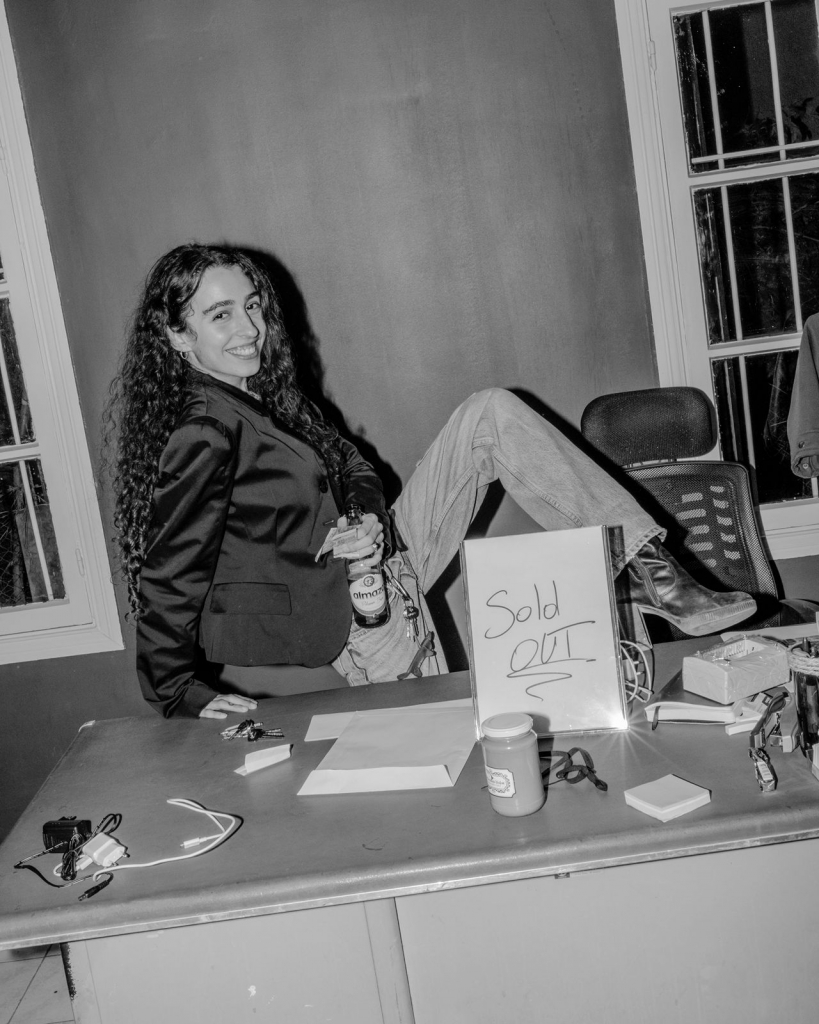


Both: It’s been great! But we can’t really tell so far if it’s because people find the magazine great or they just need it.
Myriam: Before and after, there’s this huge excitement around the magazine. People are excited about this.
Maya: The most important outcome of this magazine for me was that it was not made to be a celebration of women. The end result does feel really true to that sentiment, because most magazines that offer “representation” for women or feminist ideologies are often sold under the package of a celebration of women, like “International Women’s Day, let’s celebrate you, let’s celebrate women!”
Did you receive any negative feedback at all? If you did, how did you deal with it?
Both: No, not yet.
Maya: The magazine is just now making its way to the Arab World, so those that did get their hands on the magazine probably already have heard of us. It’s definitely a journey.
How did you decide that you want to make a print magazine, especially because print as a medium in Lebanon is struggling?
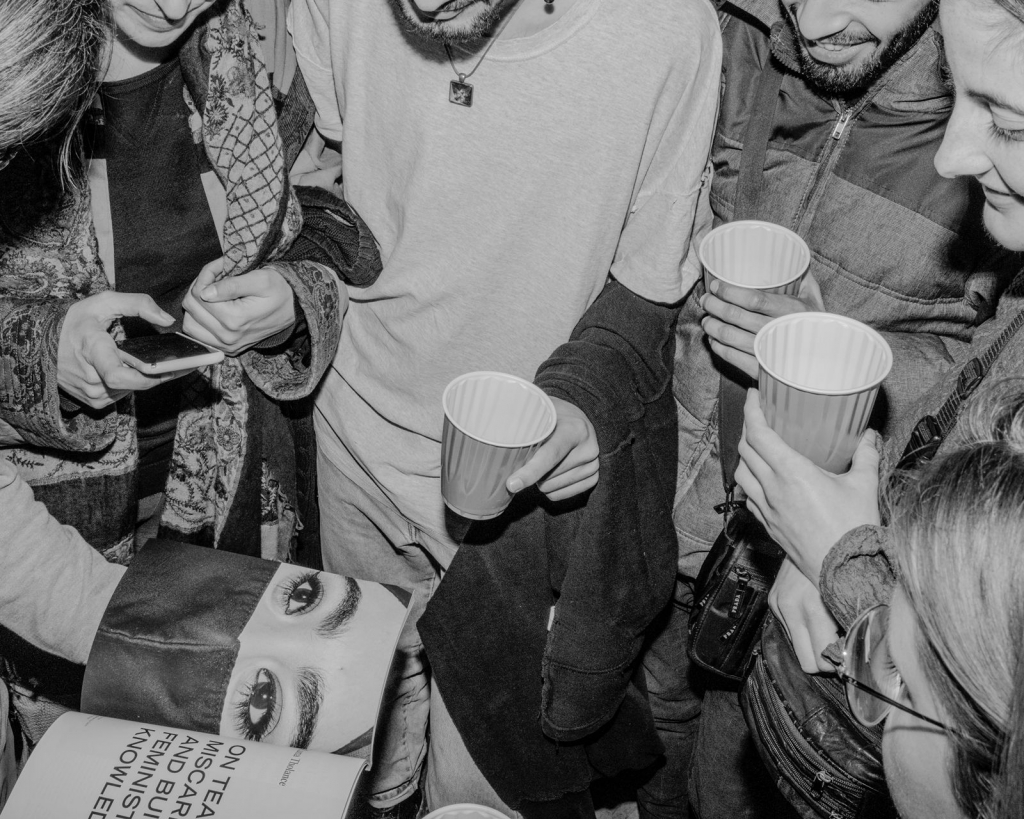


Myriam: From my side, I love having something physical—like a physical object that stays. It’s not like news that will disappear the next day.
Maya: From my end, there are a few reasons that the magazine is in print. One is the very, very selfish reason of my love for print material, but also because the printed word literally occupies space when it’s on paper, versus when it occupies online or cyber space.
Third, there’s an exhilarating sense of responsibility but also an exhilarating sense of something going to print and not being reversible. That’s a driving factor for me—the newsroom culture, news going to print and existing on paper and not online. It’s irreversible.
Myriam: It’s here to stay.
Now that you’ve launched the first issue, what plans and projects are you working on for the future?
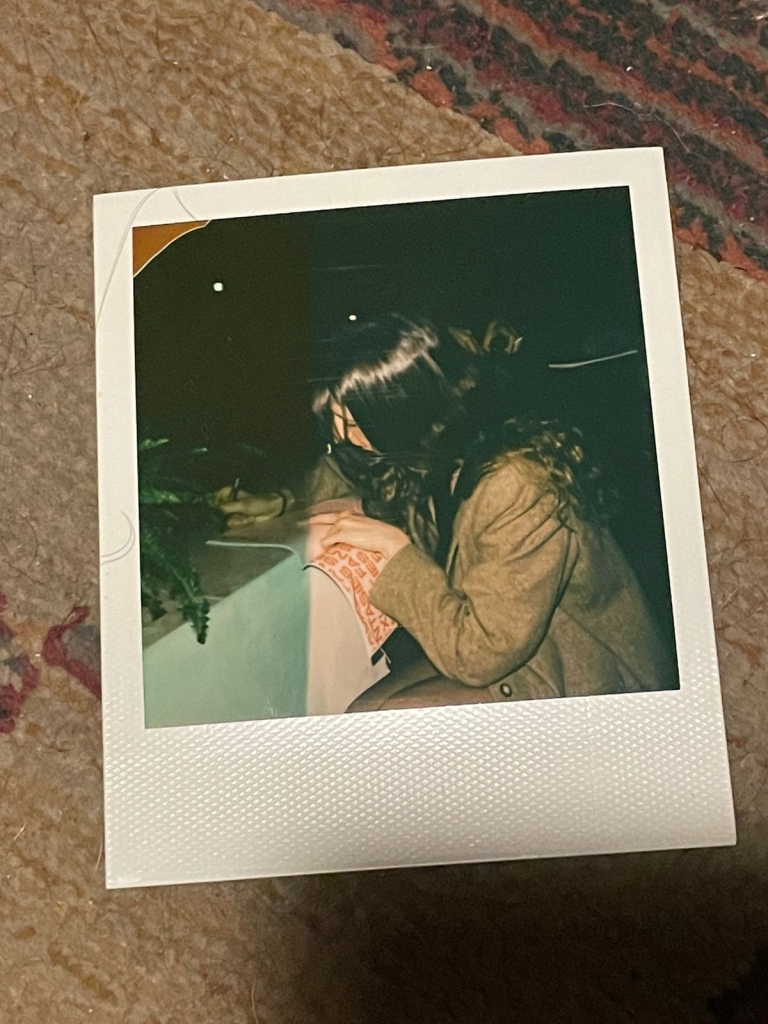


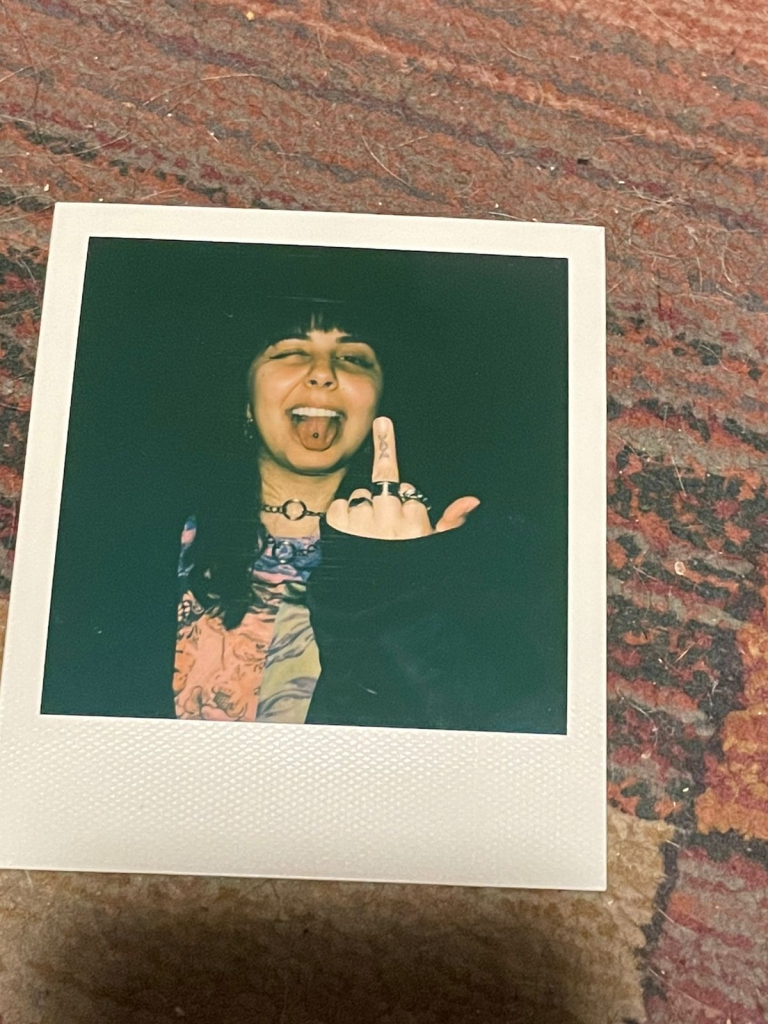


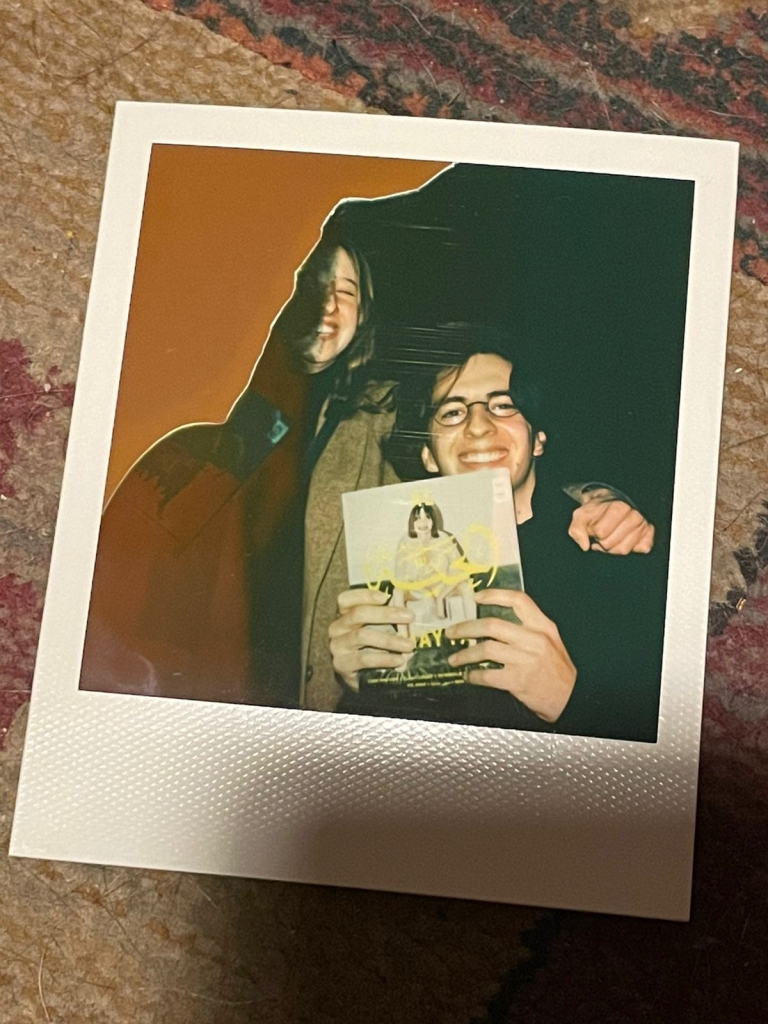


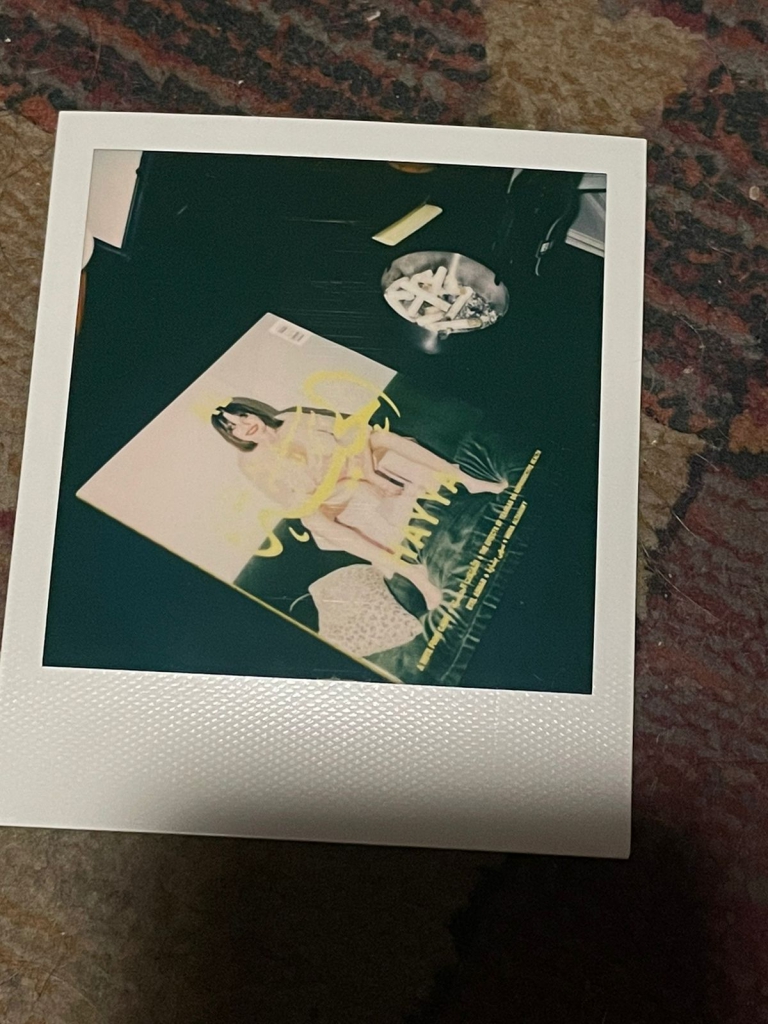


Maya: We’re working on issue two together, it’s coming out this summer. We’re also working on a digital platform that’s going to be in the form of an online magazine, and it’s going to feature very different content than the print magazine.
Everything that we publish in print is going to be more timeless, whereas everything that we publish online is going to be more time-based, including more video work.
We are slowly working on having launch events for the magazine in several cities. We’ve done Paris and Beirut. New York, Montreal and London are on their way. We’re slowly working on the rest of the world. We’d love to do one in Cairo and another in Amman.


